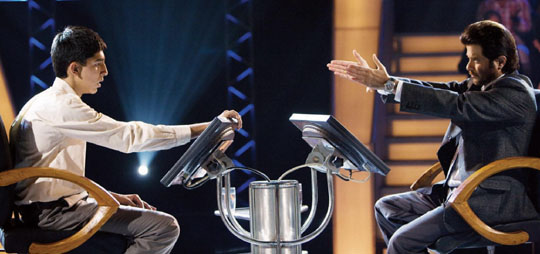At first glance, you could hardly find a more unlikely candidate for a Best Picture Oscar than "Slumdog Millionaire." With no stars and a cast of mostly Indian unknowns, a director best known for a controversially hip film about junkies, and — God forbid — subtitles, that would normally be three strikes and yer out. "Slumdog Millionaire" had only two things going for it: It was a very, very well-made film, and it had become a runaway hit.
Director Danny Boyle brings the kinetic style of filmmaking that so energized his breakthrough hit "Trainspotting" to tackle the story of two orphan brothers from Mumbai's slums and the girl who comes between them. Working off a script by Simon Beaufoy ("The Full Monty"), which was adapted from Vikas Swarup's novel "Q&A," Boyle lived in Mumbai for a year, breathing in the city's ambience and energy, and filmed on its streets guerrilla-style to bring the story to life.
In an interview with The Japan Times, two days before he would pick up a Best Director Oscar (as well as seven others for the film), Boyle was relaxed and cracking jokes. The 52-year-old Mancunian looks much younger, no doubt due to a laid-back attitude that served him well when dealing with the logistics nightmares of shooting around India and in Mumbai's bustling streets. Between being chased out of the Taj Mahal mid-shoot (and sneaking his second unit back in, posing as a German documentary team) and paying Mumbai "community leaders" (i.e., gangsters) for the right to film in certain neighborhoods, Boyle had plenty to stress about.


















With your current subscription plan you can comment on stories. However, before writing your first comment, please create a display name in the Profile section of your subscriber account page.